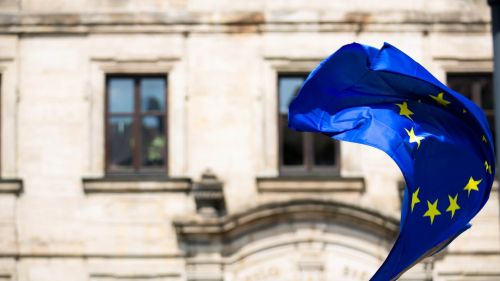EU-Mercosur FTA: The Unheralded Trade Agreement with Big Implications

Overshadowed by global trade conflicts, the pending EU-Mercosur trade pact underlines the shifting global trade landscape away from a US-led international trade order.
EU-Mercosur Agreement (MEUA)
Earlier this year, the European Union (EU) and the South American economic bloc Mercosur concluded 20 years of negotiations, announcing a free trade agreement that signals the continuing shift away from a US-led international trade order.
Accounting for a quarter of global GDP, the EU-Mercosur Agreement (MEUA) is the first comprehensive trading pact signed by Mercosur in its nearly 30 years of existence. The deal stands to eliminate more than 90% of tariffs over the next decade, liberalizing the traditionally protectionist economies of Mercosur (Argentina, Brazil, Paraguay, and Uruguay). Mercosur exporters will gain substantially improved access to Europe’s protected agricultural markets, building on a trading relationship that produced €87.6 billion in bilateral trade flows in 2018, and has generated over €430 billion of cumulative investment.
Given its share of the global economy (see table below), MEUA could contribute to the ongoing shake up of global supply chains as a result of the US-China trade war. An ascendant Mercosur agricultural sector and increased bilateral trade flows between the two blocs could also presage a loss of agricultural market share in the EU, the world’s second largest agricultural import market, for US-based exporters.
Potentially more damaging to US interests, MEUA also demonstrates the continued willingness of other countries to set the rules of global trade in the absence of US leadership. Indeed, in the years preceding the signing of MEUA, the EU has struck trade agreements with Canada, Mexico, and Japan, while the United States has walked away from trade accords such as the TPP.
To be implemented, however, MEUA must still be ratified by all involved governments, an already lengthy process that could be delayed by political interests on both sides of the Atlantic. Some EU countries, such as France and Ireland, have expressed unease over the loosening of import quota restrictions, which could undercut European producers. And while MEUA commits Mercosur countries to effective implementation of the Paris Agreement to combat climate change, some EU countries have threatened to veto the accord over President Jair Bolsonaro’s handling of this summer’s fires in the Amazon.
MEUA must also overcome regional fragmentation within Mercosur. While former Argentinian President Mauricio Macri was an ardent backer of the deal, newly elected Alberto Fernandez cast doubt in the run up to the election, stating that some aspects of the deal would be “disadvantageous for Argentina.” President Fernandez has more recently moderated his stance, but this is likely only to appease Brazil, Argentina’s biggest export market.
If the deal is implemented, however, it will not only benefit the EU and Mercosur economically, but could portend a larger strategic partnership between the two regions. The sudden threats of new tariffs on Argentina, Brazil, and France recently made by President Trump only serves to drive a wedge between these countries and the United States, and could incentivize coalescence around MEUA in the face of a common economic adversary.
Regardless, the signing of this new trade agreement counters the recent moves toward protectionism in global trade, as illustrated by the US-initiated stalling of the World Trade Organization’s Appellate Body, and is further evidence of the trend toward regional plurilateral pacts. While the Trump administration fixates on bilateral issues such as trade deficits, much of the rest of the world is finding plurilateral solutions and writing the rules for the future of global trade. In the long run, American economic and strategic interests stand to fall behind.